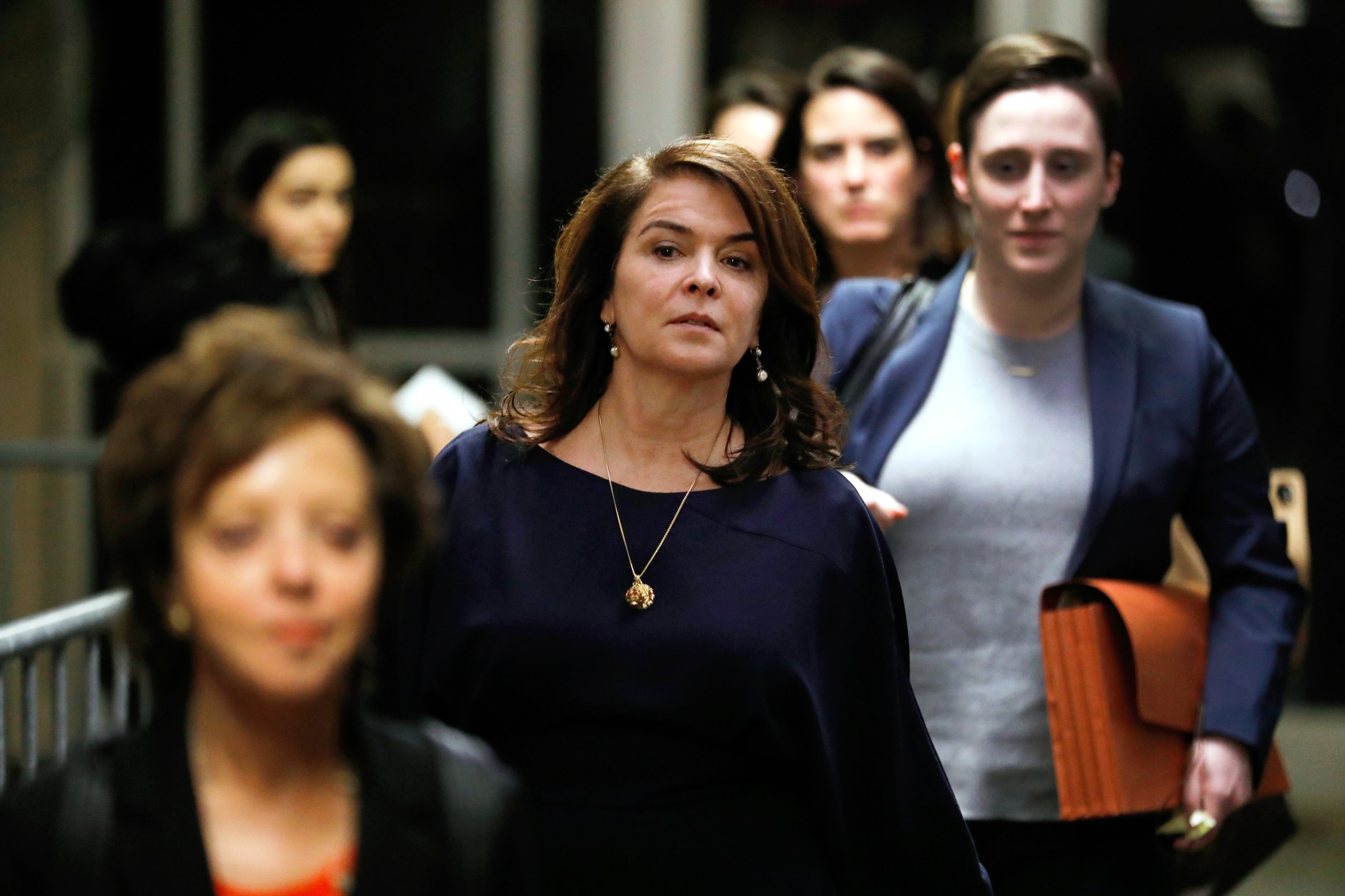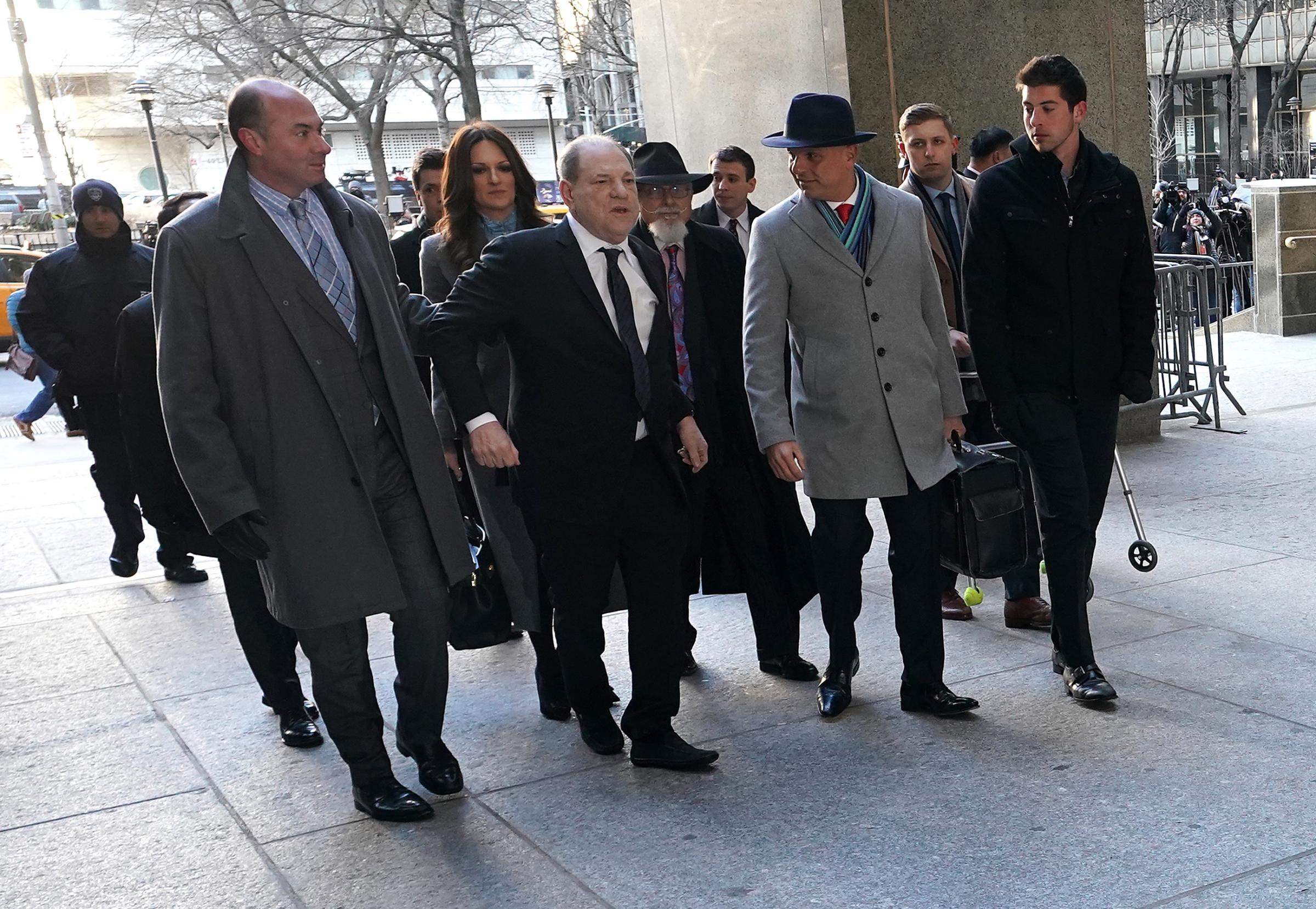
Harvey Weinstein’s rape and sexual assault trial opened in dramatic fashion. Lines formed before dawn outside the lower Manhattan courthouse. Full-throated protesters bellowed for justice for Weinstein’s accusers. A list of possible witnesses promised potential jurors a glimpse of Hollywood A-listers.
But as testimony in the former Miramax chief’s trial enters its second week Monday, it’s the critical but less compelling details of victim behavior and myths surrounding sexual assault that have taken center stage. And while Judge James Burke insisted at the start that this case would not be a “referendum on the #MeToo movement,” the issues that came to the fore as a result of that movement—consent and victim-shaming among them—have dominated much of the testimony.
“The idea that women respond to sexual assault by screaming, yelling, punching, biting—although that happens, it’s rare,” forensic psychiatrist Barbara Ziv explained from the witness stand Friday, the third day of testimony. Ziv, an expert witness for the prosecution who also testified in comedian Bill Cosby’s sexual assault trial, dismissed the “rape myths” that she said society clings to: that most assaults are committed by strangers, that victims typically scream and try to run away and that they immediately report assaults.
“That’s not true,” Ziv testified as prosecutors sought to undermine defense claims that Weinstein’s accusers have not behaved like women who were terrified of Weinstein or who felt threatened by him.
Weinstein’s defense team has seized on the fact that some of the dozens of women who have accused him of sexual assault since the 1990s maintained outwardly friendly relations with him. In her cross-examination of the prosecution’s second witness, actor Annabella Sciorra, defense attorney Donna Rotunno on Thursday quizzed Sciorra about her behavior on the night more than 25 years ago when she says Weinstein pushed his way into her Manhattan apartment and violently raped her after they’d had dinner with other people at a restaurant.
“You say he pushes his way in, right?” Rotunno said. “Did you walk out?”
“There’s no way to get by him,” Sciorra replied.

Throughout her questioning, Rotunno touched on the issues that Weinstein hopes will cast doubt in jurors’ minds about his alleged victims’ veracity. She asked Sciorra why she answered a knock on her door at 10 p.m., why she didn’t call the police, 911, or a hospital after the alleged attack, and why she attended an event where Weinstein was present several weeks later. Sciorra, best-known for her roles in the Sopranos and the 1997 film Cop Land, denied Rotunno’s characterization of the dinner party as a “Miramax event.”
While Sciorra’s alleged attack occurred too long ago for Weinstein to be charged with raping her, the actor’s testimony is key to prosecutors’ attempts to show a pattern of abuse. The actual charges Weinstein is facing stem from a rape and a separate sexual assault in New York City, in 2006 and in 2013. If convicted, the 67-year-old faces life in prison.
Prosecutors got a boost Friday afternoon when two of Sciorra’s friends, fellow actor Rosie Perez and former model Kara Young, took the stand.
Perez described a phone conversation she said she’d had with Sciorra after the alleged assault.
“I called her up. I was in a pretty jovial mood. Hey girl, what’s up? Wondering whether you wanted to hang out. She responded in a very weird voice,” Perez testified. Perez said Sciorra was whispering, “as if she was hiding something.”
Perez said when she pressed Sciorra to explain what was wrong, Sciorra broke down crying. “She said I think I was raped,” Perez said. Months later, she testified that Sciorra confirmed it was Harvey Weinstein who’d attacked her.
Under cross-examination, Perez, who described herself and Sciorra as “very, very good friends,” said she had not gone to Sciorra’s apartment after the phone call and that it was “maybe a couple of days” before they spoke again.
Young said Sciorra “was fidgety and nervous” when the two saw each other in 1994, which would have been after the reported attack, when Sciorra has said she was cutting herself and drinking too much as a result of the trauma. “She seemed like a mess,” said Young, describing “long, skinny” vertical cuts on Sciorra’s upper thighs.
Weinstein, appearing to chew gum, watched the testimony quietly as the seven-man, five-woman jury listened intently and took notes. Unlike previous days, when people lined up before dawn to gain access to the courtroom, interest appeared to drop off by Friday. Instead of a crushing crowd, there were empty seats in the courtroom. The protesters who gathered outside the courthouse during jury selection have disappeared, and Weinstein now arrives surrounded by his legal team but not having to listen to demonstrators’ cries for his conviction. His spirits appeared high Wednesday as he headed into court for opening arguments. Before disappearing into the courtroom, he told reporters he felt he could have a fair trial because he has “good lawyers.”
Weinstein has pleaded not-guilty in the New York case and denies all allegations of non-consensual sexual contact. If he’s acquitted in New York, he faces another trial in California, where he could receive up to 28 years in prison if convicted of charges there.
The prosecution will call more witnesses Monday, and the trial is expected to last until March 6.
More Must-Reads From TIME
- The 100 Most Influential People of 2024
- The Revolution of Yulia Navalnaya
- 6 Compliments That Land Every Time
- What's the Deal With the Bitcoin Halving?
- If You're Dating Right Now , You're Brave: Column
- The AI That Could Heal a Divided Internet
- Fallout Is a Brilliant Model for the Future of Video Game Adaptations
- Want Weekly Recs on What to Watch, Read, and More? Sign Up for Worth Your Time
Contact us at letters@time.com